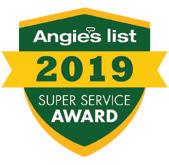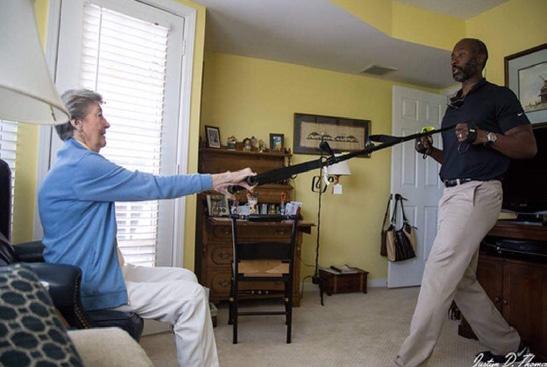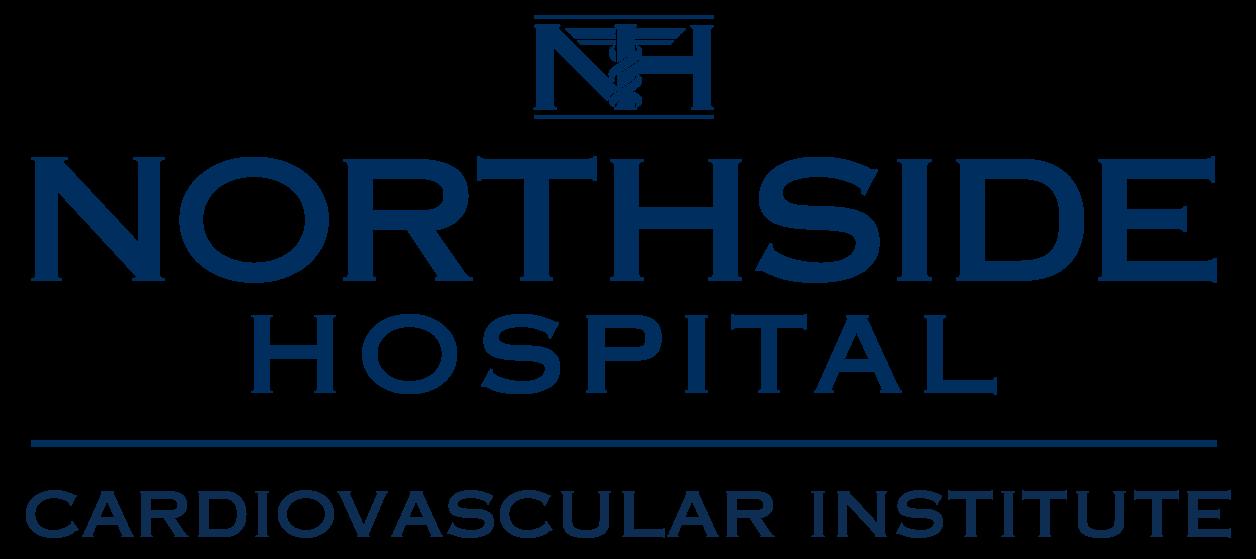



























Say the idea of looking at the mountains, craters and shadows of the moon gets your interest. Perhaps a distant and colorful nebula inspires awe and wonder. Or maybe the prospect of checking out Saturn and its rings-hanging like a jewel in space-gives you goosebumps.
You just might be a future amateur astronomer. Several observatories in Georgia, most of them associated with academic institutions, offer observation
and research opportunities for students and others seeking astronomical knowledge/ degrees and almost all throw open the doors to the public during non-pandemic times. But what’s more, a healthy number of amateurs-seniors well-represented among them-are increasingly taking astronomy up as a hobby, sometimes spending thousands of dollars on gear. The goastronomy. com and Middle Georgia Astronomical Society websites together list nearly a dozen sky-scanning clubs in the state
Experts caution that budding cosmologists will need a healthy dollop of patience-and advance planning as well. But the rewards for being deliberate are spectacular.
“The most common reaction is ‘wow,’” said David Dundee, a genial 60-ish astronomer who presides over the 20-inch telescope and observatory at the Tellus Science Museum in Cartersville (along with its associated planetarium). The observatory has opened with social distancing and safety measures during the pandemic, unlike most others. Their
120-seat planetarium also is open on a limited basis for sky shows.

“The most important thing is the ability of a person to come here and put their eye to the telescope and say ‘I can see the rings of Saturn or ‘I am looking up at the Orion nebula,’ “ Dundee said. “To me that’s so much better than being at home (at a computer) and punching buttons and up come pictures.”
He said the most popular viewing targets are the moon, Mars and Saturn, as well as Orion and other nebulae (which are giant gas and dust
clouds far away in space). The Andromeda galaxy, star clusters and lunar and solar eclipses also find favor.
“You can call them the greatest hits of space,” he said with a grin.
Tellus volunteer, amateur astronomer and retired chemist Bob Gossman said his interest in the heavens flickered to life while viewing astronaut Ed White’s groundbreaking Gemini 4 spacewalk in 1965. “I excitedly woke my parents and they told me to go back to bed,” he recalled and told of a similar, much more recent epiphany.
During a public program one night he coaxed a frazzled mother riding herd on her kids
into taking a look through the eyepiece. Saturn and its rings held center stage.
When she looked herself, she was so surprised by what she saw that she yelled an obscenity, Dundee recalled. Then she was embarrassed because she had blurted the words in front of her kids. “I asked her to describe what she was seeing,” he said, “and her voice began cracking. She was tearing up.”
The modest masonry, brick and steel-girder observatory at Tellus has a 20-inch telescope that looks a bit like a planetary probe. More compact and lighter than its predecessors, two people can lug it into place and perch it on its mount.
Once the telescope is in position and darkness falls, families of all sizes and shapes – including a healthy contingent of seniors – make their way to the campus. Before the COVID-19 pandemic,
Dundee said, the domed building about 10,000 visitors a year. This year is different, he said, because the observatory was shut down for weeks.
What’s more, he said, “this is a big date night location.”
Recently a group of teenagers celebrating a birthday showed up. During public nights, smaller telescopes set up near the observatory and volunteers with laser pointers spotlight highlights of the heavens.
The Tellus telescope is a 20inch reflector utilizing mirrors. Refracting telescopes, by contrast, use lenses. Each has advantages and disadvantages, said Gossman. A refracting telescope is typically cheaper and a bit brighter, while a reflecting device can gather more light with a more compact design.

Dundee said novices might think magnification is most crucial, “but the name of the game in astronomy is aperture. The bigger the telescope, the more light it can gather up and the fainter the objects you can see.”
Those who are newly
interested in the moon, planets and stars can start out in a more uncomplicated way.
“Astronomy is like most hobbies,” said Dr. Greg Feiden, assistant astronomy professor at the University of North Georgia and the director of their observatory, which recently was rebuilt and which uses 24-inch and 28-inch telescopes. “You can spend as much or as little as you want on equipment. It can be completely free as you walk out and take a look at the night sky.”
An inexpensive star chart can make sense of the constellations. For somewhat more, a pair of sturdy binoculars costing less than $100 can bring the brighter celestial objects into view, astronomers said.
Feiden guestimates that about 20 percent of the observatory’s visitors during normal times (it’s closed to the public now) are seniors. He thinks that proportion may increase with their new facility, which includes a lift to take visitors up to the observation
continued on page 6

I asked her to describe what she was seeing and her voice began cracking. She was tearing up.
BOB GOSSMAN
SPECIALAstronomer David Dundee looks after the observatory and planetarium at the Tellus Observatory.
continued from page 5 deck and a periscope that can bring an eyepiece down as low as the 3-foot level.
For those doing their own viewing, patience pays off, Gossman stressed. He advises taking time to let your eyes adjust and utilizing peripheral vision to spot additional objects like planetary moons.
He advises people with home gear to adjust their “finderscopes,” an aiming device, and align them with the main telescopes during the day. After dark, he noted, getting one’s celestial bearings can
The Tellus Science Museum in Cartersville is open for public viewings with safety and social distancing requirements in place. Their planetarium is also open on a limited basis. Their planetarium is also open on a limited basis.

Here are some other places in north Georgia where you often can find public events that allow you to study the night sky. Because of the COVID-19 pandemic, many now are closed to the public, but say they plan to reopen. Check their webpages for more up-todate information.
The University of Georgia observatory in Athens is closed and no date has been set for a reopening.

The University of North Georgia astronomical observatory in Dahlonega is listed as closed due to its transition into a new facility as well as COVID-19 concerns and aims for to re-open in early 2021.
Georgia State University’s Hard Labor Creek observatory east of Atlanta has eliminated open houses until further notice due to COVID-19. The same applies to the observatory on their Dunwoody campus.
Bradley Observatory at Agnes Scott College in Decatur is closed until further notice.
The Ralph Buice Jr. Observatory at Fernbank Science Center in DeKalb County is closed and aims to reopening for viewing opportunities around the first of the year.
 — Mark Woolsey
— Mark Woolsey
take a while even with advance planning and fancier computercontrolled systems.
For astrophotographers, taking one’s time is especially a virtue. Jim Ribble of Forsyth County, a retired broadcaster, has shot hundreds of pictures of the sky and said with fainter objects gathering the needed light and software processing can take hours.
“I enjoy the challenge” he said, “of pointing the telescope to a dark part of the sky and realizing that that it’s filled with incredible, colorful objects.”
At Tellus, Dundee wonders s whether renewed interest in the space program, with a return to the moon and a mission to Mars now in the planning stages, has jumpstarted recent interest in the night skies.
“I think any manned missions to space excite the general public. The Hubble space telescope and the robotic missions are exciting, but when you start including human brains in the exploration, it’s a whole different story.”
Back on Earth, increasing light pollution and Georgia’s typical summertime heat and humidity pose issues. “We are destroying the sky with useless lights,” is how Ribble puts it. Dundee said such pollution has increased greatly in recent years as metro Atlanta has surged northward.
Georgia State University’s Dr. Sebastien Lepine, who chairs the physics and astronomy department, said the school’s observatory at Hard Labor Creek likewise grapples with the issue. He suggests getting at least 30-50 miles away from downtown Atlanta for better views, or perhaps climbing Stone Mountain. Likewise, he said, spotting the bands of the Milky Way are a well-outsidethe-city experience.
For those willing to travel, Stephen C. Foster State Park in
South Georgia is a designated “dark sky” area, according to astronomy.com. Those come with lighting restrictions. And in general, the areas with the darkest skies are well west of the Mississippi, particularly in the southwest.

Those skies seemingly hold almost universal appeal for the public-as well as astronomers, whose painstaking, careful work sometimes keeps them up until nearly dawn.
“It’s rare you come across somebody who says, ‘Yuck I don’t like the stars.’”. Dundee said. “Everybody appreciates the beauty of the sky.”
Care that’s centered on you is nearby.
7 care centers located near you.
Belvedere
Iora Primary Care
3527 Memorial Dr., Unit W
Decatur, GA 30032
Shiloh Square
Iora Primary Care
3895 Cherokee St. NW., #400
Kennesaw, GA 30144
Mableton
Iora Primary Care
5015 Floyd Rd. SW., Ste. 710 Mableton, GA 30126
Sugarloaf
Iora Primary Care
4850 Sugarloaf Pkwy, Ste. 101 Lawrenceville, GA 30044
Marietta
Iora Primary Care
280 Cobb Pkwy SE., Ste. 60 Marietta, GA 30060
Tucker
Iora Primary Care
4424 Hugh Howell Rd., Ste. D Tucker, GA 30084
Metropolitan Iora Primary care
2685 Metropolitan Pkwy SW., Ste. G Atlanta, GA 30315
Take a virtual tour at IoraIsHere.com
Learn more about the unique kind of care in Humana’s network at HealthThatCares.com.

Or contact your local licensed Humana Sales Agent at 1-844-224-8993 (TTY: 711).
¿En español? Llame gratis al 1-844-357-9121 (TTY: 711).
Humana is a Medicare Advantage HMO, PPO and PFFS organization with a Medicare contract. Enrollment in any Humana plan depends on contract renewal. Other Providers are available in our network. Provider may also contract with other plan sponsors. Important! At Humana, it is important you are treated fairly. Humana Inc. and its subsidiaries comply with applicable Federal Civil Rights laws and do not discriminate on the basis of race, color, national origin, age, disability, sex, sexual orientation, gender, gender identity, ancestry, marital status or religion. ATTENTION: If you do not speak English, language assistance services, free of charge, are available to you. Call 1-844-224-8993 (TTY: 711). Español (Spanish): ATENCIÓN: Si habla español, tiene a su disposición servicios gratuitos de asistencia lingüística. Llame al 1-844-357-9121 (TTY: 711). 繁體中文 (Chinese): 注意:如果您
電 1-844-224-8993 (TTY: 711)
Y0040_GHHKTYSEN_M
A network of doctors who care about you as a patient, and as a person. That’sHUMANA MEDICARE ADVANTAGE PLANS
A s k u s a b o u t S F C ( 6 7 8 ) - 9 6 7 - 8 6 0 0 h e l l o @ p a s s i o n t o c a r e h c c o m w w w p a s s i o n t o c a r e h c c


 By Tiffany Griffith
By Tiffany Griffith
By 11a.m., when many people are in the middle of a busy workday, Inez McDowell has already reached 12,169 steps – surpassing the daily recommended number for grown adults. That is something she is enormously proud of.

“I notice that I am stronger than younger people in lifting up two bags,” McDowell said. “And they’re like 10 years younger than me, and more.”

Keeping active is a priority for this 75-year-old. Fulton County’s Department of Senior Services is helping her and many other seniors reach their fitness goals – even while maintaining social distancing.

The county is keeping people 55 years of age and older moving with free online exercise classes. Among them is McDowell’s favorite, a virtual dance and wellness class called “Zoomba with Seniors.”



The class is taught online using the Zoom platform by instructors from National Black Arts – formerly known as National Black Arts Festival. The program just received a portion of a $40,000 contribution from Northside Hospital for the 2020-2021 season. The goal is to provide seniors with wellness education and exercise through dance.
“It’s impossible to adequately describe the importance of National Black Arts and what it has meant to the people of Atlanta,” said Lee Echols, vice president of marketing at Northside Hospital. “NBAF’s impact as a legacy organization gives it both gravitas as well as



NBAF’s Managing Director Stephanie Owens said the program closely aligns with Northside Hospital’s mission and strategic initiatives focused on preventative health services and healthy lifestyle behaviors.

“We are thrilled to continue this important work with Northside, impacting our communities and improving the health of those that we serve,” said Owens.
Several seniors, including McDowell, are seeing the benefits. Participating seniors report feeling more agile and having fewer incidents of falling; have lowered their body mass index readings, which measure body fat based on weight and height; and say they feel more alert and attentive.




“My health is so good, that when I went to the doctor in June, they didn’t take my labs because they are always so great,” McDowell said. After losing 40 pounds., she no longer needs eye drops or medication for cholesterol.
Group leaders say McDowell is the most active member of the group and her doctors expect she will go on to live for many years.
“I want to be active. I want to be moving,” said McDowell. “I didn’t want to come down with diabetes or high blood pressure. So far it has done so much good for me. I have lost a lot of weight.”
But she is not taking any chances with the coronavirus. McDowell’s son caught the illness in New York, and some of her friends have died from COVID-19. That is why she is grateful for the online classes.
“I just try to do my exercise online,” McDowell said. “No crowds. No going out. You’re not going to get me going nowhere.”
McDowell said she is not bothered by the time alone in her home because being active makes the time pass. She encourages fellow seniors to be determined and consistent if they want to reach their goals.




Fulton County’s Department of Senior Services offers a variety of classes for cooking and nutrition, art, music, foreign language and technology via their Senior Virtual Programming and YouTube Channel.


For more, 404-613-6000.
Connection is key to a longer and more vibrant life, and powers everything WE do at The Piedmont at Buckhead senior living community. It’s like being part of a super supportive family of waiters, chefs, housekeepers, ZEST® activity coaches, care & wellness teams, and even a bunch of really friendly and fun neighbors, all helping you thrive. This is what “we’re in this together” is all about. Experience the Power of WE at The Piedmont at Buckhead.
Please call 404.369.7523 today to schedule your personalized tour.
Ask about our
The GFWC Stone Mountain Woman’s Club has been a staunch supporter of Stone Mountain’s ART Station since it launched 37 years ago.
So the club’s members could not sit idly by when the pandemic cancelled ART Station’s theater productions, education programs and a huge fundraiser last spring.
After learning that staff is working through the organization’s continuing shutdown on a variety of projects, the women asked how they could help.

ART Station told them about some long-standing to-dos, and the women went to work.
Over the summer, Woman’s Club members cleaned a garden at ART Station and organized and cataloged a library containing about 3,500 to 4,000 plays.

They also cleaned, restored and repaired about 150 hats estimated to be between 60 and 80 years old.
The hats were donated to ART Station over the past couple of decades by the families of four women — including three GFWC Stone Mountain Woman’s Club members — who have passed away.

Once restored, the hats were photographed, cataloged and carefully preserved in labeled boxes, and they will go
on display after ART Station reopens, said the center’s cofounder, David Thomas.
“We’ve used them in so many shows,” Thomas said, adding that the center has


loaned some of the hats to local theater companies over the years. “They’re so beneficial. They make productions more authentic.”
Organizing the collection began with a scavenger hunt. The hats were scattered in a costume storage room full of crammed shelves and boxes piled to the ceiling, said Jane Brown, chair of the Woman’s Club’s Art & Culture Community Service Program. “You could see little hats here and there. … They were squished flat as pancakes, many of them,” she said.
The volunteers unearthed cloche hats and floppy sun hats, turbans and beanies, pillboxes and fascinators, applejacks and derbies. Some of them were damaged years ago when a tree fell on ART Station’s roof during
ART Station’s vintage hats came from the collections of the following women:

■ Wilma Hipps — Formed and managed a statewide advocacy group, Georgians for Better Transportation, and was active in many civic organizations. She was the first female director of the Stone Mountain Rotary Club.
■ Lucille Williams McCurdy
— A Stone Mountain Woman’s Club member for more than 70 years, she was named Volunteer of the Year by the General Federation of Women’s Clubs and was the first woman named “Mr. DeKalb” by the American Heart Association.
■ Sarah Alice Horton McCurdy — Lifetime member of the Stone Mountain Woman’s Club and a nurse who served as Southeastern Supervisor for the American Red Cross Blood Bank during World War II.
■ Grace Tuggle — A past president of both the Stone Mountain Woman’s Club and the Fourth District of Georgia Federation of Women’s Clubs.
Sources: GFWC Stone Mountain Woman’s Club and Wilma Hipps’ obituary.

a storm and everything in the room got soaked.
Brown, who sews, paints and crafts, took to the internet to learn how to restore and date vintage hats and worked with her team to brush, steam clean, stuff and stitch each hat to its original glory.
“It was a challenge. It was exciting,” she said. “Not only was it an outlet to give us something to do during the pandemic, it was a learning opportunity.”
As she repaired fine netting and replaced tiny chenille dots, Brown wondered about the story behind each hat, especially one little grayish blue number.
“It was so worn and frail, that you could tell someone had worn that to church every Sunday,” she said.
Thomas is thrilled with the restoration work.
The hat collection now is “just extremely organized,” he said. “It’s a great asset that’s not only for ART Station but for the theatrical community in Atlanta.”

Brown created a poster that
depicts some of the collection.

“I just look forward to the day that I can walk into the ART Station and see the hats exhibited,” she said. “I think that that will be a nice feeling.”
Show
Directions:
I’ve been married for 25 years and I’ve raised four kids, but I still call my mother with food questions.



On this particular evening, however, I started out very confident in my culinary abilities. The sky was storm-cloud gray outside and the wind was blowing patio furniture from one side of the deck to the other, but the ominous weather didn’t deter me. I had a bag of frozen seafood, and I was going to whip up a dinner of linguine with sautéed scallops.
I had stocked up on frozen seafood for my daughter’s return from college. She had recently announced she was a pescatarian, and the rest of the family benefited from her lifestyle choice.
My hungry, 14-year-old twins were in their Boy Scout uniforms, prepared to go to their meeting, and in my own predictably last-minute fashion, I was starting dinner exactly 25 minutes before it was time to leave. I followed the package directions to quick-thaw the scallops, as butter melted and water boiled. Pasta went in, scallops began to sizzle, lightning flashed, thunder cracked, and then it happened — the power went out.
“Oh, NO!” I cried. I really did not know what to do. The scallops were only partially cooked, and I didn’t want to waste them. They were the expensive bag — wild, not farmed.

Robin Conte lives with her husband in an empty nest in Dunwoody. To contact her or to buy her column collection, “The Best of the Nest,” see robinconte.com.




“We have a Coleman stove,” my eager little Star Scouts said from their perch at the breakfast bar.
I dialed my cellphone. “Hello, mom? It’s me— is it raining there? Well, I’ve got a quick food question. The power just went out here, and I just started cooking scallops. No, they were frozen, and I quick-thawed them. Yes, under cold running water. So I don’t know — can I put them in the fridge now and finish cooking them later?”
I started going through the dark refrigerator, pulling out bread and jelly. “Boys, I guess you’re just going to have to eat peanut butter and jelly sandwiches tonight.”
“We have a Coleman stove.” They had found their spelunker headlamps and were at their stools with the lights secured around their foreheads.


I continued my cellphone food-crisis conference. “OK, but here’s the thing, Mom. I don’t know when the power will go back on or when I’ll be able to finish cooking them —“ I had found the lighter and was walking around the house, lighting Mediterranean-fig-scented candles. Meanwhile, my boys were on their own cellphone, informing the Scoutmaster about the power outage and discussing how that might affect their meeting.
Still a bit dubious about the cooling power of my refrigerator and the staying power of the uncooked scallops, I addressed my Scouts, “Boys, I’m really sorry. This was going to be such a great dinner. But we’ll eat it tomorrow — I hope.” I had found a package of lunch meat that didn’t smell too strong and set that on the breakfast bar, alongside the strawberry jam.
“Mom! We’ve got a Coleman Stove!”
Before I knew it, they were climbing back up the basement stairs, one carrying a lantern, one carrying the stove, and both wearing their spelunker-type headlights. One took off his headband flashlight and put in on my head, the other set up the stove and lit both burners, and 10 minutes later, they were eating linguine with sautéed scallops. We looked like coal miners hovering over French cuisine.
I drove my twins to the Scout meeting., and, on the way back, I noticed that the lights were on in the house two doors down from my home. The blackout began at exactly the house before mine.
I entered my own dark house, opened my kitchen windows to air out the smells of burnt butter and seafood, removed my headlight, relit the candles, and settled down with a glass of wine.
Some things are better by candlelight, anyway.
We might have a new name, but our love for seniors remains the same! The team you’ve grown to love is now supported by Atlas Senior Living out of Birmingham, AL.
In celebration of our new name, we are offering a special lifetime rate lock for seniors who move in by Nov. 30, 2020. With our bundled care pricing, our rates are the best you’ll receive in Atlanta!

Our Benefits
- Friendly concierge services
- Three chef-inspired meals daily with flexible options

- Fitness and wellness activities
- Plentiful activities, events, and live entertainment
Alpharetta: (706) 928-6680 Buckhead: (706) 928-6616 Marietta: (706) 928-6550
Come visit our beautifully renovated assisted living and memory care community.


The use of the words “recruit” and “seniors” in the same sentence recently caught my attention. It’s rare that the over-70 crowd is wanted for more than filling assisted living facilities and listening to financial advisors.
However, coronavirus is changing how we view many things these days, and America’s seniors are no exception. They are learning how to be this year’s newest desired commodity.
The possibility of developing dangerous symptoms from COVID-19 increases with age, with those who are age 85 and older facing the highest risk. In the U.S., about 80% of deaths related to COVID-19 have been by people age 65 and older, according to Johns Hopkins University researchers. Risks are even higher for older people when they have underlying health conditions, such as heart disease, diabetes or long-term lung disease, suggest Hopkins’ researchers.
For one thing, doctors suggest that since many seniors don’t develop as strong an immune response to vaccines. So participation by seniors in clinical trials testing COVID-19 treatments is critical. It is essential to evaluate how coronavirus vaccines work for our most “at risk” population — older adults.
But Harvard researcher and physician Sharon K. Inouye points out “older adults, particularly those in their 70s and 80s, may be systematically excluded from clinical trials ...”
Seniors tend to be more difficult to reach than other potential trail subjects and seniors often show little interest in participating in something they know little about.
Inouye says her team’s “biggest concern is that without clinical trial testing, older adults may ultimately be denied treatments and vaccines — based on safety concerns. If that were to happen,” she said, “… equitable distribution to [a diverse] population will not be possible…”.

It would be, she said, “an egregious oversight.”
Two contemporaries of mine have recently volunteered for phase-3 vaccine clinical trials. We’re not using their names because their trials remain ongoing. One is 80 and the other 72 and both have a strong interest in the latest technology and thrive on being inquisitive.
“I have always ‘volunteered’ for interesting community activities and this aroused my curiosity,” the 80-year-old said. “Generally, I turn these adventures into a learning experience. Like most of us, I had been following the COVID-19 disease as it continued to build across the country.”
He says he modified his lifestyle by avoiding potentially
infectious situations, like getting a haircut, and trying to learn what he could from media reports and “official” information.
“It didn’t take long for me to look for ways I could help and the opportunity to participate in one of the vaccine trials seemed just right. I found their website, signed up and waited.” He said he got the call about two weeks later and took the first appointment the trial offered.
The 72-year-old learned of the trial from the 80-year-old, who is a friend. “Since retiring, I have done a great deal of volunteer work in a variety of settings,” the younger man said in an email. “With the pandemic, many of my volunteer activities dried up as Atlanta events were canceled over this past spring and summer.”
“I was trying to find other ways to give back and a vaccine trial looked like a way I could make a contribution, not just in my community, but on a far wider scale,” he said. “I did discuss the trial with my primary doctor as well as with our church’s wellness director (an RN) and got a couple of “atta-boys.”
According to University of Georgia researchers, the pharmaceutical industry struggles to recruit trial participants from a number of groups. Their concern is in attracting racial and ethnic minorities and especially elderly women.
One difficulty is projected patient outcomes cannot represent the general population, if racial or ethnic minorities have been excluded in the past (often inadvertently). Barriers to underrepresentation include trust, awareness, transportation, time away from home or work, and a basic understanding of often complex consent requirements. The legal language can also be a challenge.

As of 2012, (in the U.S.), Congress required the Food and Drug Administration to report on the diversity of participants in clinical trials. A major focus must be based on safety and effectiveness, which address such factors such as gender, age and race.
The coronavirus has brought the problems related to diversity to the forefront. In a recent New England Journal of Medicine article, the authors state, “Despite widespread underreporting of patients’ race or ethnicity, we know that Black, Latinx, and Native Americans are dying from COVID-19 at rates disproportionate to their representation in the (U.S.) population.”
“The trial I’m in is being conducted carefully and professionally
If you or anyone you know who is older than 70 and interested in participating in coronavirus prevention research, check www.PreventCOVID.org/)? Persons without internet access or who do not feel comfortable with online forms can call 866-CVT1919 (866-288-1919).
the 72-year-old volunteer said. “Each step is thoroughly explained and well documented. The people are very friendly and appreciative of what the volunteers are doing. “We are thanked at every step of the way. If any complications or symptoms happen to appear, which I certainly don’t anticipate and haven’t personally experienced, the folks running the trial seem well prepared to deal with it.”
“For me, it’s turning out to be interesting, and in some respects, fun,” the 80-year-old said. “My current role is to observe and report how I feel.” He also will need to provide blood samples from time to time.
“So far, it’s intellectually stimulating, and I hope useful to mankind in the long run. Although I don’t know if what I received was the “real thing” or a placebo, but now I have a bit of a feeling that I am like Superman and invincible to COVID-19. The trial will officially run for about two years, but the results, leading to release of the product will be known much sooner, probably in a matter of months,” he said.
Although both are older than 70, white and male, they still represent an important component of the senior population in the U.S. What’s still missing is racial diversity and older women.
But the gap may be closing. According to one company, as of August 21, about 18% of the participants in a clinical trial were Black, Latinx, American Indian or Alaska Native. But as of Oct. 2, about 33% were from those communities.

I don’t know about you, but I’m ready to send 2020 out the back door with the following comment: “Don’t let it hit you in the %#($& on the way out!” I think this has been one of the craziest years to date for me -- and I’ve had some crazy years, most of which I won’t talk about -- but come on, this is getting old!
Steve Rose is a retired Sandy Springs Police Captain, veteran Fulton County police officer and freelance writer. He is the author the book “Why Do My Mystic Journeys Always Lead to the Waffle House?” and the column “View from a Cop.”
This column is supposed to focus on crime prevention but, well, nothing is normal now, so, for the sake of the integrity of the column, let’s review. Don’t click on e-mails from unknown

sources. Don’t provide your personal information to any unsolicited source, and, if you have forgotten anything said in my earlier columns, then refer to the archives of Atlanta Senior Life or email me and I’ll gladly send them to you.

That said, what in the Wide, Wide, World of Sports is a goin’ on here?
I’m choosing masks as if they are part of my personal fashion selection. “I love what you’ve done with your hair—and mask!” And: “Who does your mask?”
Speaking of masks, wearing one under your nose does not help. Sure, it fogs your glasses up making it difficult to see. I understand. I mistakenly had a long political conversation with a mailbox the other day. Embarrassing? Yes, although the mailbox had some good points. The rule on the mask is: “Over the nose, under the chin,” okay?
Meanwhile, fanny packs are coming back in fashion so you will have a place to put those 10 bars of antiseptic soap you need to carry with you. “Soap for the Road,” I call it.
I have to admit that I am completely okay with avoiding people who are sick. Don’t we already do that? I took that one step further and upgraded it to, “Avoid those sick and those who you don’t particularly care for.
And I have a list.
Wash your hands! 60% alcohol-based hand sanitizers are recommended, with plenty available at the store. Disinfect spaces that you frequent. If there is anything good that comes from Covid-19, then it must be that we will address our personal hygiene a great deal more seriously than before, like burning your clothes after wearing them two or three times or maybe just realizing that simple steps can prevent the spread of germs and bacteria.
Covid-19 is only a part of the craziness of 2020. The political “atmosphere”—yeah, the Holy Grail of dysfunction right now, is off the rails.
Regardless of which candidate your vote is for, the debate was less of a reasoned
When it’s your loved one, decisions about assisted living or memory care are a challenge. That’s where we can help. Committed to your contentment, we offer you:

• Our patient, undivided attention and straight talk;
• An invitation to join your loved one in their new apartment for their first days after move-in; and
• If all our efforts to satisfy fail you, a complete refund after 60 days should you decide to move out.
JUST AHEAD: PEACE OF MIND.
Schedule a confidential conversation or a Q&A Zoom meeting with our Executive Director – and make contentment happen. (678) 321-6124
discussion centered on the highest office in the land and more like two middle-school students arguing over the last helping of mac and cheese in the cafeteria lunch line.
Also, please Lord, deliver us from the television ads! I never knew the candidates had so many skeletons in the closet, and I’m sure it is all true because I read it on the internet.
Social unrest, yep, it is a thing and a serious problem. Let me say this, no one hates bad cops more than the good ones. Still, they are few. I have 44 active years in law enforcement and as someone who has a seat at the table of those who, in my case, walked the walk, I will say this: facts are objective, they play no favorites.
So, what in the world do we do with all this craziness that is 2020 and how do we get back on the path to a reasonably normal life, or retirement in many of our cases?
Maybe it is up to us to set an example. After all, we made it through the sixties, and for me, fond memories—I think.

In the seventies, disco tried to ruin us by creating tight pants that no normal man should have to wear and Travolta set the dance bar so high that we were doomed from the beginning. Sure, I tried it but the result was not pretty. The large medallion almost killed me. I danced so badly that as a collective group, the club participants asked me to leave.
Still, we survived difficult times before. Maybe we should lend a little advice to those whose only life-experience is friending a celebrity on Twitter. I have always thought that when “things” go south -- and believe me, this is one of those “things” -- it will not last forever. There is a light at the end of the tunnel— although a teeny-weeny one.
Find your normal, even if for a short time, something that takes your mind to a happy place. Music, or movies, (can we go to those yet?) And, when that 20-something “expert” tries to lecture you on the state of the world today, tell them, “This is nothing. I survived disco.”
We create an environment where our residents can grab hold of life and keep it vibrantly meaningful, exceptionally safe and full of love.

From what I’ve researched, the formula for spousal benefits seems very complicated. I read somewhere that it was a good idea to start the lower earning spouse’s benefit at age 62 and have the higher earning spouse file at full retirement age, for the spouse to get maximum benefit. But that information does not seem correct from other things I’ve read. Please help me clear this up.
My wife’s birth year is 1956 and she now gets $656/month in Social Security benefits after claiming at 62. I have not claimed my benefits yet and Social Security’s estimator
says I qualify for about $2,850/month when I reach full retirement age. My birth year was 1957.
So, if I take my benefit now at 63 will my wife’s benefit go up? And if I wait until my full retirement age to claim, will she get half of my benefit? I’ve tried to research all of this, but it is still very unclear.
Yes, the spousal benefit formula is complicated, especially when both of you are entitled to your own
Social Security benefits. And there’s never a simple answer to whether it is a good idea for the lower earning spouse to start benefits first at age 62. For one thing, it depends upon whether they are still working, but it also depends upon health, life expectancy, and need for the money early.
Nevertheless, if your wife’s current age 62 benefit is $656, then her benefit at her full retirement age (had she waited) would have been about $895. This is known as her Primary Insurance Amount, or “PIA.” Spouse benefits are computed using PIA amounts, so if your full retirement age (FRA) benefit will be $2,850, here’s how your wife’s spousal benefit will be calculated if you claim your Social Security benefit after your wife has already reached her full retirement age:
• 50% of your benefit (PIA) is $1,425. Because your wife’s primary insurance amount is $895, her spousal boost is $530 ($1,425$895). Her spousal boost ($530) will be added to her actual early benefit ($656) and her new benefit amount as your spouse, at her full retirement age, will be about $1,186. Obviously, less than half of your full retirement age benefit amount.
The computation changes if you claim your SS benefit now, before your wife has reached her full retirement age, because getting her spouse benefit before her full retirement age means her spousal boost will be reduced (she
automatically gets her spousal benefit when you claim).
The reduction to the spousal boost is actuarial, according to the number of months before her full retirement age that it is taken. If you were to claim now, when your wife is 64, her spousal benefit would be computed like this:
• The spousal boost amount of $530 would be reduced because your wife hasn’t yet reached her full retirement age. Instead of the full $530 spousal boost, it would be reduced to about $442. The reduced spousal boost is added to your wife’s early benefit of $656, for a total benefit of about $1,098. Once again, less than 50% of your full retirement benefit amount.
So, as you can see, because your wife took her own benefit at age 62, she cannot get a spousal benefit equal to 50% of your full benefit, regardless of when you claim. If you claim your Social Security before your wife reaches her full retirement age, your wife’s spousal boost amount will be reduced, further lowering the total benefit amount your wife is entitled to as your spouse. The basic rule is this: any time any Social Security benefit is taken before one reaches her or his full retirement age, that benefit is reduced. And a spouse who claims their own Social Security retirement benefit before full retirement age will never get a spouse benefit equal to 50% of the other spouse’s primary insurance amount.

This article is intended for information purposes only and does not represent legal or financial guidance. It presents the opinions and interpretations of the AMAC Foundation’s staff, trained and accredited by the National Social Security Association (NSSA). NSSA and the AMAC Foundation and its staff are not affiliated with or endorsed by the Social Security Administration or any other governmental entity. To submit a question, visit our website (amacfoundation. org/programs/social-security-advisory) or email us at ssadvisor@ amacfoundation.org.

The 2 million member Association of Mature American Citizens [AMAC] [https:// www.amac.us] is a senior advocacy organization that takes its marching orders from its members. We act and speak on their behalf, protecting their interests and offering a practical insight on how to best solve the problems they face today.

The Book Festival of the Marcus Jewish Community Center of Atlanta, known for bringing bestselling authors into Dunwoody, is going virtual for its 2020 program.
Now in its 29th year, the festival’s lineup for November includes authors John Grisham (Nov. 11), Rachel Bloom (Nov. 21) and Melissa Clark (Nov. 22). Author discussions were to begin in September and continue through Dec. 2. The discussions will be hosted on the Zoom computer platform.
A season pass covering admission to most events cost $144. It does not include books or programs where book purchases are required to see the livestream. Events featuring Michael J. Fox (Nov. 19), Rachel Bloom (Nov. 21), David Baldacci (Nov. 22) and Ina Garten (Dec. 2) are not included in the season pass price. Tickets for those events can be purchased separately.
Tickets are available at atlantajcc.org/bookfestival and range from free to $72. Some of the tickets come with the speakers’ books from A Cappella Books in Decatur. The free event is with local authors Harry Stern and Sandra Berman on Nov. 17.
MJCCA is partnering with the National Jewish Community Centers Literary Consortium so other JCCs in the country can participate in the author events to help centers dealing with by revenue cuts due to the pandemic.
“The obstacles that have been borne of this global pandemic have challenged us to identify new ways of doing business and

have brought people together in ways none of us could have imagined six months ago,” MJCCA CEO Jared Powers said in a press release.
Here are authors scheduled to take part in the MJCCA’s 2020 Book Festival during November and December.
Nov. 8 Natan Sharansky, Gil Troy and Joan Lunden
Nov. 9 Esther Safran Foer
Nov. 10 Rachel Beanland, Kristin Harmel, Dale Berra
Nov. 11 John Grisham, Cameron Douglas
Nov. 12 Jim McCloskey and Philip Lerman
Nov. 14 Lawrence Wright
Nov. 15 Raffi Berg
Nov. 16 Ariel Sabr
Nov. 17 Harry Stern and Sandra Berman
Nov. 18 Michael Ian Black and Cleo Stiller
Nov. 20 Mimi Lemay
Nov. 21 Rachel Bloom
Nov. 22 Melissa Clark
Dec. 2 Ina Garten
Source: MJCCA
If you’re looking for a socially distanced weekend outing this fall, a drive through the North Georgia mountains or North Carolina to see the leaves changing color couldn’t be more perfect.

At this writing, Georgia State Parks were limiting access if parks become too overcrowded to maintain social distancing for the pandemic. Some activities in the parks have also been limited or cancelled, so check with an individual park at gastateparks.org before you go.

According to the Georgia Department of Natural Resources, these are the parks to check for the best views of leaves changing color.
Amicalola Falls State Park & Lodge – Dawsonville
About an hour north of Atlanta you’ll find the Southeast’s tallest cascading waterfall. A short, flat path leads to a boardwalk offering the most spectacular views. There’s also an easy-to-reach overlook at the top. For a tougher challenge, start from the bottom of the falls and hike up the steep staircase.
Black Rock Mountain State Park –Clayton
At an altitude of 3,640 feet, Black Rock Mountain is Georgia’s highest state park.

(Brasstown Bald is the state’s highest peak.) Roadside overlooks and the summit visitor center offer sweeping views of the Blue Ridge
Mountains. The 2.2-mile Tennessee Rock Trail is a good choice for a short, moderate hike. For an all-day challenge, take the 7.2-mile James E.
Edmonds Backcountry Trail.
Cloudland Canyon State Park –
Rising Fawn
One of Georgia’s most beautiful parks offers easy-to-reach rim overlooks and challenging trails. A favorite hike takes you down a staircase to the bottom of the canyon, where you’ll find two waterfalls. (Remember, you have to hike back up, but it’s worth it.).
F.D. Roosevelt State Park – Pine Mountain
Many people are surprised to find hardwood forests and rolling mountains south of Atlanta. For a touch of history, drive to Dowdell’s Knob to see a life-size bronze sculpture of President F.D. Roosevelt and views of the forested valley. Ga. 190 offers a pretty driving route.
Fort Mountain State Park –Chatsworth
This park is best known for a mysterious rock wall along the mountain top, plus a variety of trails. For the easiest walk, take the 1.2-mile loop around the park’s green lake. For a challenging, all-day hike, choose the 8-mile Gahuti Trail. Mountain bikers have more than 14 miles to explore. Ga. 52 has beautiful mountain scenery and overlooks worth stopping to see.
Moccasin Creek State Park –
Lake Burton
Georgia’s smallest state park sits on the shore of a gorgeous deep-green lake. Ga. 197 is a particularly pretty road, passing Mark of the Potter and other popular attractions.
Smithgall Woods State Park –
Helen
Protecting more than 6,000 acres around Dukes Creek, this is the perfect spot for fly


fishing while enjoying fall color. Day visitors can picnic near the creek, and overnight guests can hike a private trail to Dukes Creek Falls. A 1.6-mile loop climbs to Laurel Ridge and provides a view of Mt. Yonah once most leaves are off the trees.
Tallulah Gorge State Park –
Near Clayton
Tallulah Gorge is one of the most spectacular canyons in the Southeast, and you can choose from easy or difficult trails. Hike along the rim to several overlooks with waterfall views, but hikes to the bottom of the gorge and climbing permits were still not being offered at press time.
Unicoi State Park & Lodge –Helen



Ziplines take you high above the forest canopy for a unique view of leaves. If you’re up for

a steep hike, take the 4.8-mile Smith Creek Trail up to Anna Ruby Falls. Unicoi offers a lodge and restaurant.

Vogel State Park – Blairsville
The 4-mile Bear Hair Gap Trail makes a nice day trip for experienced hikers, offering a birds-eye view of the park’s lake. For an easier walk, follow the Lake Loop to a small waterfall below the dam. The twisting roads around Vogel, particularly Wolf Pen Gap Road, offer some of north Georgia’s prettiest fall scenery.
For the latest information on parks to visit to see the best fall color, go to gastateparks. org/LeafWatch
Asheville, North Carolina, is the sort of place that you never tire of visiting. At least I never do. No matter your age, interests or style, there is always something cool and new to do in this funky, walkable, artsy, good-eating, brewery-rich, city nestled in the mountains just a 3.5-hour drive north of Atlanta. The cool mountain air is an added bonus.
On a recent visit, we appreciated the COVID-19 protocols, including the statewide requirement that masks be worn at all inside public places and outdoors where social distancing isn’t possible; the restrictions minimally affected our favorite activities.
On the dog-friendly patio, you can order larger meals. Information: batteryparkbookexchange.com.

If the weather is nice, head to the Blue Ridge Parkway, a popular unit of the national park system; the visitor center is a 12-minute drive from downtown Asheville (Milepost 384). From there, it’s a half an hour drive to a 360-degree mountain view at Craggy Pinnacle (Milepost 364). The 1.4-mile, round-trip hike to the top of the 5,892-foot peak can be crowded, so try to go early. Additional hiking opportunities are available on nearby Craggy Gardens Trail with its mile-high bald and panoramic views. Sections of the parkway typically close in the winter. Information: nps.gov/blri/indx.htm.
►Second only to Portland, Maine on the breweriesper-capita list, Asheville is considered one of the 15 best beer cities in the world. The city’s walkability makes brewery touring easier and safer. Our favorite is The Green Man Brewery, located in the South Slope District near interesting art galleries and restaurants; it’s one of several dozen breweries with socially distanced, outdoor seating. As an IPA lover, my draft pick is always the Wayfarer.

Information: greenmanbrewery.com.

▲The Battery Park Book Exchange and Champagne Bar, located in The Grove Arcade, is always one of our first destinations after checking in to a B&B or Airbnb within walking distance of downtown. Used books (in excellent condition, including first editions), fine wine or beer, and bistro-style bites are available in the comfortable space.


◄Locally known as “Foodtopia,” Asheville has more than 100 full-service restaurants in a 5-square-mile area. Jettie Rae’s Oyster House, a sustainable seafood restaurant with tented, outdoor seating, is just a fiveminute walk from our North Asheville B&B. We’ll definitely be back. My Jumbo Lump Crab Louie Salad was delicious, and my companion thoroughly enjoyed his Oyster Po Boy. Information: jettieraes.com.
404-307-8857
►On our way out of town, we visited the 434-acre North Carolina Arboretum on the Blue Ridge Parkway to walk the forested hiking (and biking) trails along Bent Creek, a tributary to the French Broad River, and tour the cultivated gardens and extraordinary bonsai exhibit.
Information: ncarboretum.org.

“We make house calls.”















Theo, a 3.5-year-old Shepherd mix is a truly special guy and he is looking for a special home. Theo came to the Atlanta Humane Society from an overcrowded rural animal control facility, and he had a severe case of heartworm disease. Now he’s completely finished with his treatment and is heartworm-free.

Theo gets a bit nervous around strangers at first, but once he’s comfortable, this gentle giant loves to spend his time playing with his favorite plushy toys, rolling over for belly rubs, and knocking a tennis ball around on the ground. Theo loves attention from his favorite people, but since he wants all the loving for himself, Theo would do best in a home without other dogs, cats, or children.
Theo is neutered, microchipped, up-to-date on vaccinations, and ready to meet you. You can learn more about Theo by clicking on his profile at atlantahumane.org/dogs or apply to adopt him by visiting atlantahumane.org/adoption-application.
Berklee, a cross-eyed cutie. came to the Atlanta Humane Society from a coastal Alabama shelter after surviving Hurricane Sally in midSeptember. Berklee loves to be petted and she enjoys having her photo taken. AHS officials don’t know much about Berklee’s history, but she was recently diagnosed with FIV, or feline immunodeficiency virus, which makes her more prone to sickness. For the most part, Berklee will live a normal life.Learn more at atlantahumane. org/cats or apply to adopt her by visiting atlantahumane.org/adoptionapplication.



When your heart needs care, you need a team of the top heart doctors by your side. At Northside Hospital Cardiovascular Institute, we bring together the leading cardiologists with the resources and technology of the Northside Network. It’s the powerful cardiac care you and your heart deserve. Our team of experts are now seeing patients in Braselton, Canton, Cumming, Holly Springs, Lawrenceville, Midtown Atlanta and Sandy Springs.
Visit northsidecvi.com or call 404.962.6000 to schedule an appointment at one of our eight locations.

